Since the introduction of Superman in 1938, when the earth is in danger, comic book superheroes spring into action. Often, heroes like those of the DC universe give everything to the cause, no matter the mental strain or personal cost. This tradition of selflessness is one of the things we admire about them. However, as comic book narratives have evolved, readers have the opportunity to look behind the curtain and witness the toll relentless crime-fighting and self-sacrifice takes on individual heroes. From Batman to Wonder Woman, no matter how godlike, no hero is completely immune to stress and fatigue, nor are they impervious to the impact their jobs have on their personal life and overall happiness. As comics probe deeper into the souls of our heroes, new questions take shape. Do heroes ever move on? Do they ever seek a life that makes them happy? Does their own health and well-being ever become a priority? There may be no such thing as a “healthy work/life balance” in super-heroics, but should there be? Heroes care for everyone, but perhaps there is something to be said for a hero who knows how to care for themself. Enter Big Barda.
Big Barda, the towering powerhouse of DC’s New Gods, is an excellent response to complex questions about superhero self-care. Barda manages an impossible balancing act rarely seen in the pages of superhero comics. Reportedly, the New Gods will soon join the ranks of DC heroes on the big screen, making this the perfect moment for a closer look at Barda’s exemplary life. It should be noted that this article will follow the general thread of Barda’s story, not necessarily every event and title she has been a part of.
Becoming Barda
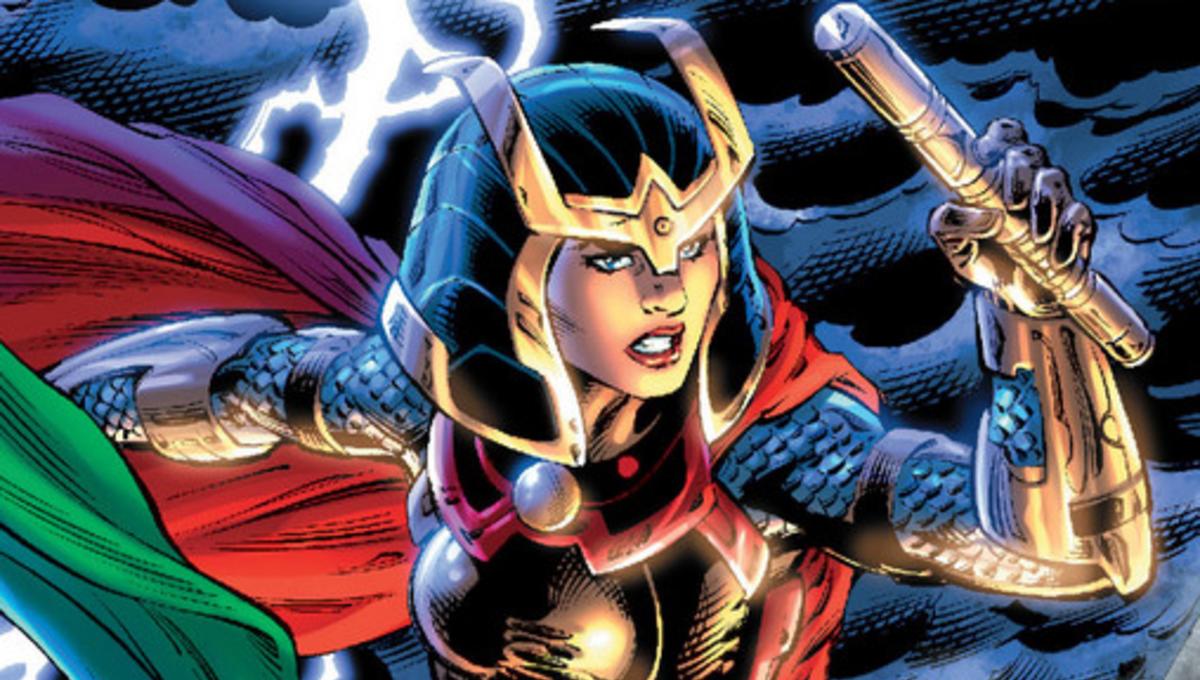
Most readers know Barda as Mister Miracle’s butt-kicking, statuesque wife. She first appeared in the pages of Mister Miracle #4 in 1971. Born on the hellish planet of Apokolips, Barda was taken from her mother as a small child to be trained as a warrior by Granny Goodness. At Granny Goodness’ Home for Orphaned Youth, Barda was groomed to lead the Female Fury Battalion and excelled at her position. At first, Barda embraced her home planet. However, over time, the oppressive rule of Apokolips began to weigh on her. After Auralie, one of Barda’s teammates was brutally tortured and killed for a ridiculous crime, Barda began to feel a conflict between her personal values and the culture of her homeland.
Shortly thereafter, Barda met and fell in love with Scott Free, the adopted son of Darkseid. Their relationship bloomed from an honest connection. In Scott, Barda recognized qualities she admired, even if they are not the qualities her training would have led her to value. Though these new emotions were confusing to Barda, she accepted their importance within herself and chose to follow the path she was beginning to perceive as the right one. Barda helped organize Scott’s escape to Earth but did not leave Apokolips with him initially.
Despite her opposition to Apokolips’ laws and the cruelty of Granny Goodness, Barda realized that a part of her was still connected to the place she was raised. Though riding off into the sunset with Scott may have appeared to be a happy ending, even in Barda’s earliest stories, she demonstrates a deep understanding of her own psychological needs. She was not ready to leave Apokolips or sever the bond between herself and Granny Goodness. Barda left only when she was truly ready, thus lessening the impact of total relocation.
Going to Earth meant forging a whole new ‘Barda’, a task the young heroine only undertook when she was certain it was what she wanted. From the start, readers see Barda make decisions on her own terms and actively seek to do what is best for her. She is not beholden to the ideas placed in her head by others, nor is she tethered to an identity that no longer suits her values. In a way, Barda’s delayed departure from Apokolips is a triumph in and of itself.
Arrival on Earth
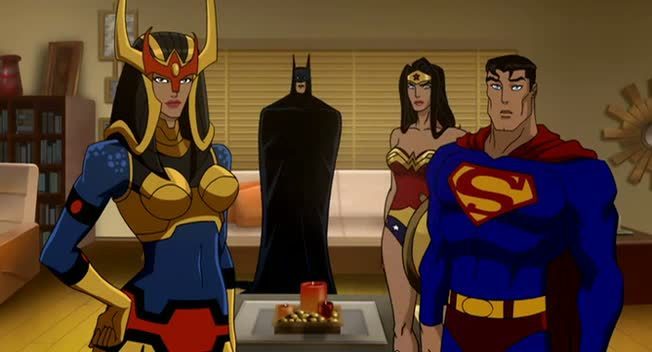
Once on Earth, Barda found Scott Free working as a magician under the alias ‘Mister Miracle’. Barda was drawn to Scott in a way she had never been drawn to another person. She helped him find success in his new path and was surprisingly supportive, considering her past. Barda did not look down on the people of Earth or waste energy clinging to an old way of life. Instead, she took advantage of the pleasures of Earth, pleasures that would have been illegal on Apokolips. Simply put, Barda learned to appreciate the little things.
Life on Apokolips was full of darkness, violence, forced decisions, and oppressive control. Barda is excited to partake in the choices she has on Earth and basks happily in the possibility of choosing her own path. The love she shares with Scott and the friendships they make throughout the years are precious to Barda. She continues to tap into her warrior side when Scott or the Justice League need her help, but on the off days, she explores this new world and allows herself the freedom to think and feel in ways that would have been impossible on Apokolips.
In one story, Barda even went as far as leaving Scott after a long period of feeling ignored and mistreated by him. In this act, she makes it clear that even when it comes to the person she loves most, she will not suffer mistreatment or abuse on any level. Of course, Barda and Scott eventually worked through this bump (in an oh so comic book way) and continued to build their life together. When the couple’s son was born, Barda threw herself wholeheartedly into the role of mother and caregiver.
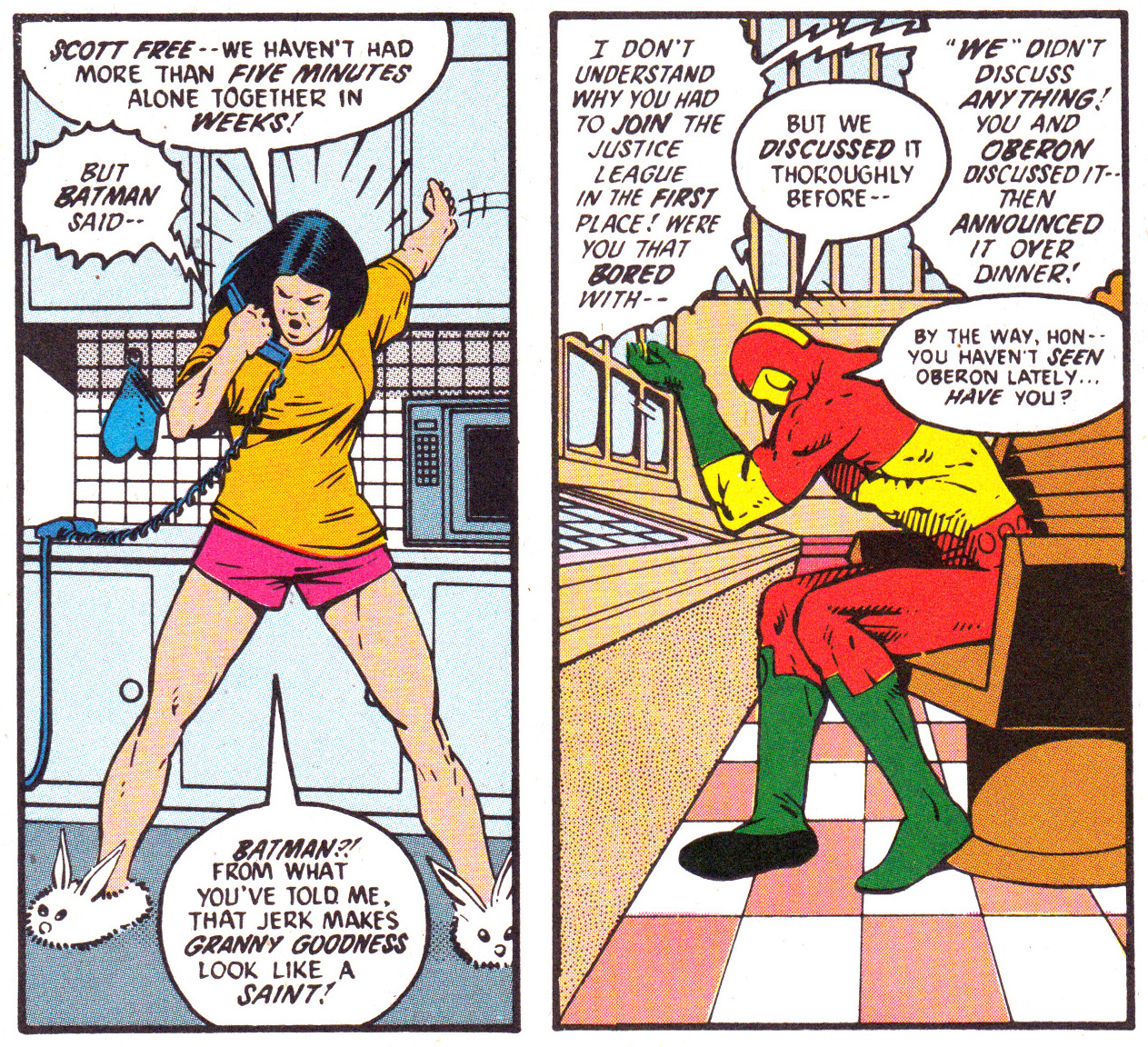
Barda loves just as fiercely as she fights, though she never would have known it on Apokolips. Love is a fulfilling experience for her. Barda is sometimes accused of appearing weak and uninspired for being satisfied with the role of housewife, but in reality, it is a clear act of defiance. To have a family, a quiet life, and a peaceful existence would have been the ultimate disgrace on her home planet. Barda’s ‘ordinary’ existence on Earth is nothing short of an impossible act of courage. Being a stay-at-home mom may not sound bold, but the love and joy she derives from that role are among the pleasures Barda watched comrades on Apokolips die for. She intends to enjoy them to their fullest.
A Hero’s Healing Process
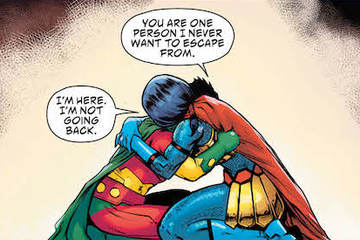
Spending most of her time raising a son doesn’t mean Barda has hung up her armor- far from it. After coming to understand their mission, Barda assists the Justice League when they believe her strength will be an asset. She is believed to be just as strong, tall, and expertly trained as Wonder Woman. The core difference between the Amazonian Princess and Barda is the morality of their training. Diana was trained to understand both war and peace. She uses her combat skills, however violent, only on missions that fight oppression. Barda later develops into the same sort of hero but has to fall back on training once used to enforce a cruel status quo. This means Barda is constantly in conflict with her own hardwiring. Strangely, you wouldn’t know it by watching her in battle. Barda keeps her composure, remaining tactical and level headed. Readers rarely see her falter as time goes on. The ghosts of Barda’s past don’t jeopardize Justice League missions the way other heroes’ might.
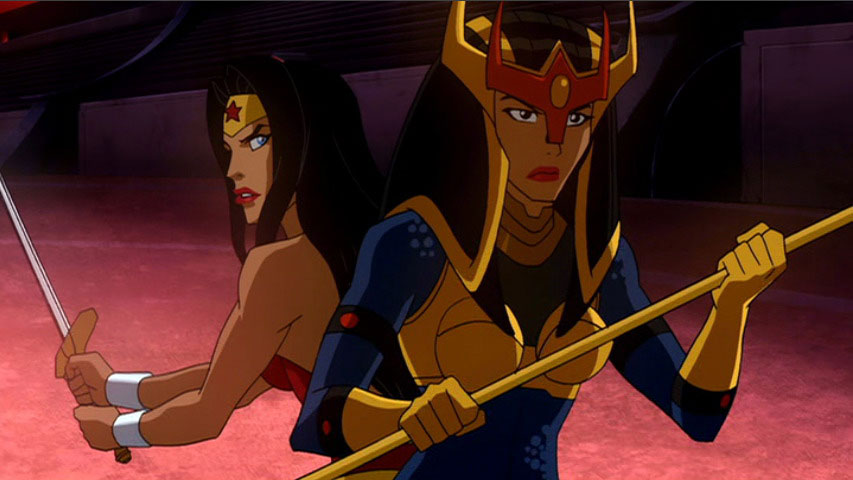
Barda’s reliable nature comes from the fact that she respects her own mental well being. She gave herself time to come to terms with Apokolips and time to heal from the violence she witnessed and carried out. Furthermore, she didn’t push herself too hard when coming to a new planet. She adapted. She grew. She figured out what she wanted and pursued it, allowing feelings of guilt and regret to fade away.
The warriors of Apokolips were not raised to waste time on useless emotions. It is likely that self-pity, guilt, and wallowing are useless in Barda’s eyes. Instead of falling into their trap, she navigates through it, pushes forward, and takes all the time and space necessary to address them properly. It is only through this process that people are able to let go and move on, which is likely why Barda never appears clouded by her past. She has confronted her trauma and developed healthy ways of moving on.
Barda knows when her mental state is drifting into dark waters. Whenever the darkness calls her back, she is unafraid to walk away, take a breather, and sort through her emotions before deciding how to move forward. In this way, she has mastered the wisdom that even the best superheroes tend to miss. Readers are used to stories in which heroes have to be told by their teammates when they are not in the right condition to fight. They have to be forced to sit out and typically resent the call. Barda is cut from a different cloth. Being an effective teammate means being in top physical and mental condition. To Barda, fighting with a damaged psyche makes a warrior more of a liability than an asset.
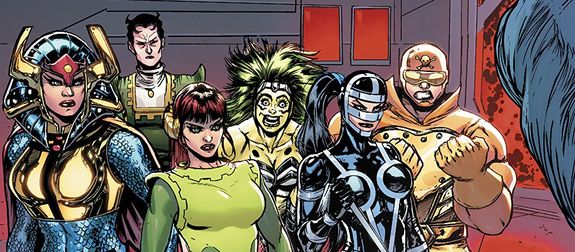
2019’s Female Furies by Cecil Castellucci offers a new take on Barda’s backstory, and a new reason for Barda to consider mental wellness before a fight. In this title, Aurelie is the leader of the Female Furies. Barda faithfully follows Aurelie’s leadership, trusting that Granny Goodness’ chosen favorite can overcome any challenge. Sadly, Aurelie is thrown off by deep psychological wounds after a powerful man is allowed to repeatedly assault her. She initially tries to continue business as usual, but the trauma impacts her judgment and performance. These digressions eventually lead to Aurelie’s death. Despite their camaraderie, Barda did not believe Aurelie when she confided in her and refused to address the clear warning signs of a friend in crisis. If Barda had listened and helped Aurelie cope with what she was feeling instead of encouraging her to suppress and carry on, her former leader might still be alive. Though Female Furies is a recent title, it is impressively true to the core of Barda’s character and the example she has represented from her earliest days.
Always a Hero
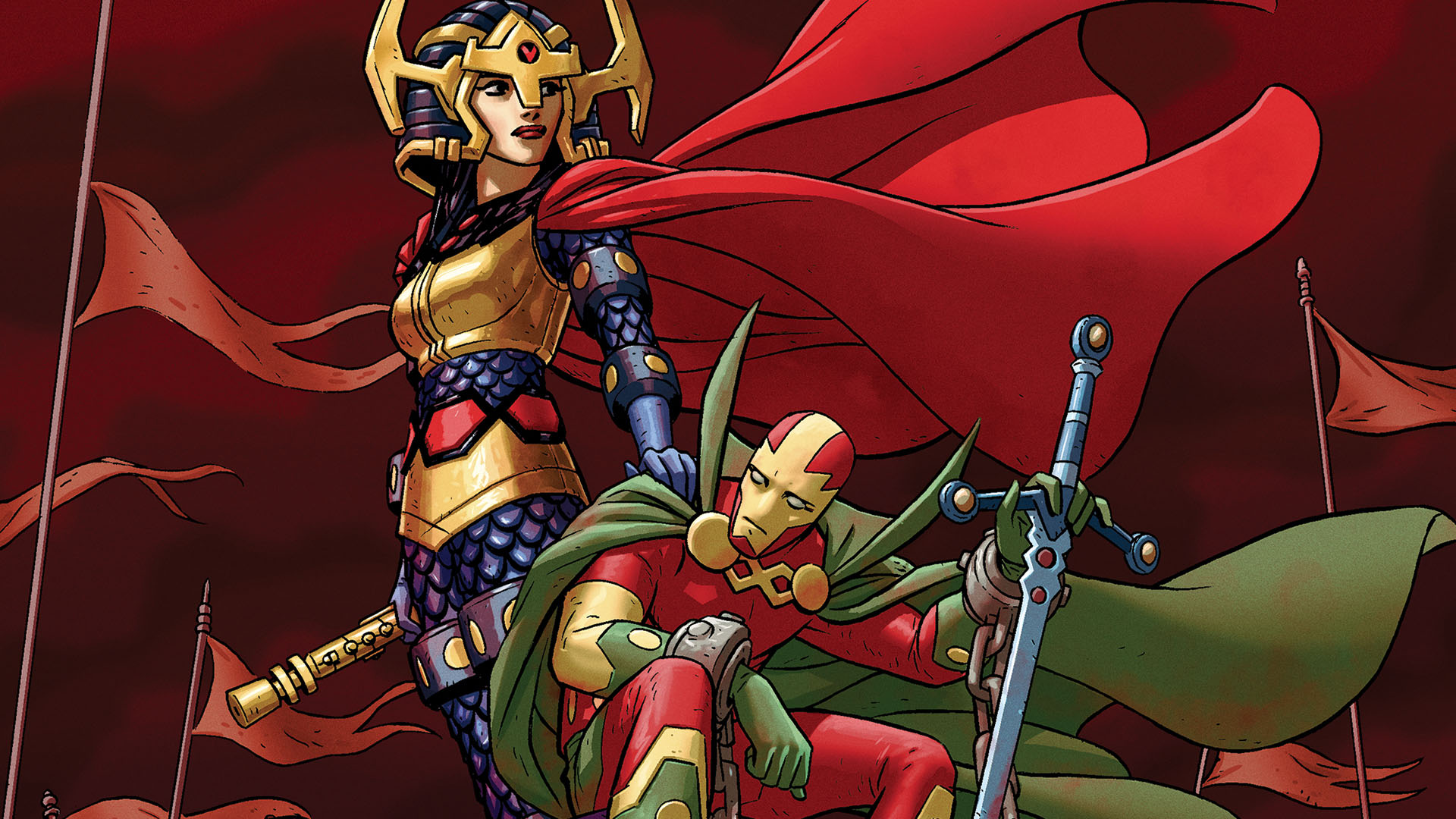
When she’s not fighting, Barda still actively helps her community. Members of the League often come to her for advice or to seek training before difficult missions. Barda is able to talk battle strategy in one moment and play blocks with her son the next. The sides of herself she values- the warrior, the mother, the wife, and the friend- all coexist harmoniously in Barda. She is always in the right state of mind to fight injustice because she takes care of her mind and recognizes that life requires a balance of both pleasure and pain, difficulty and simplicity. In the battle between Apokolips and Genesis, Barda witnessed the danger of trying to build a world on extremes. She avoids making this mistake in her own life, much to the benefit of those around her.
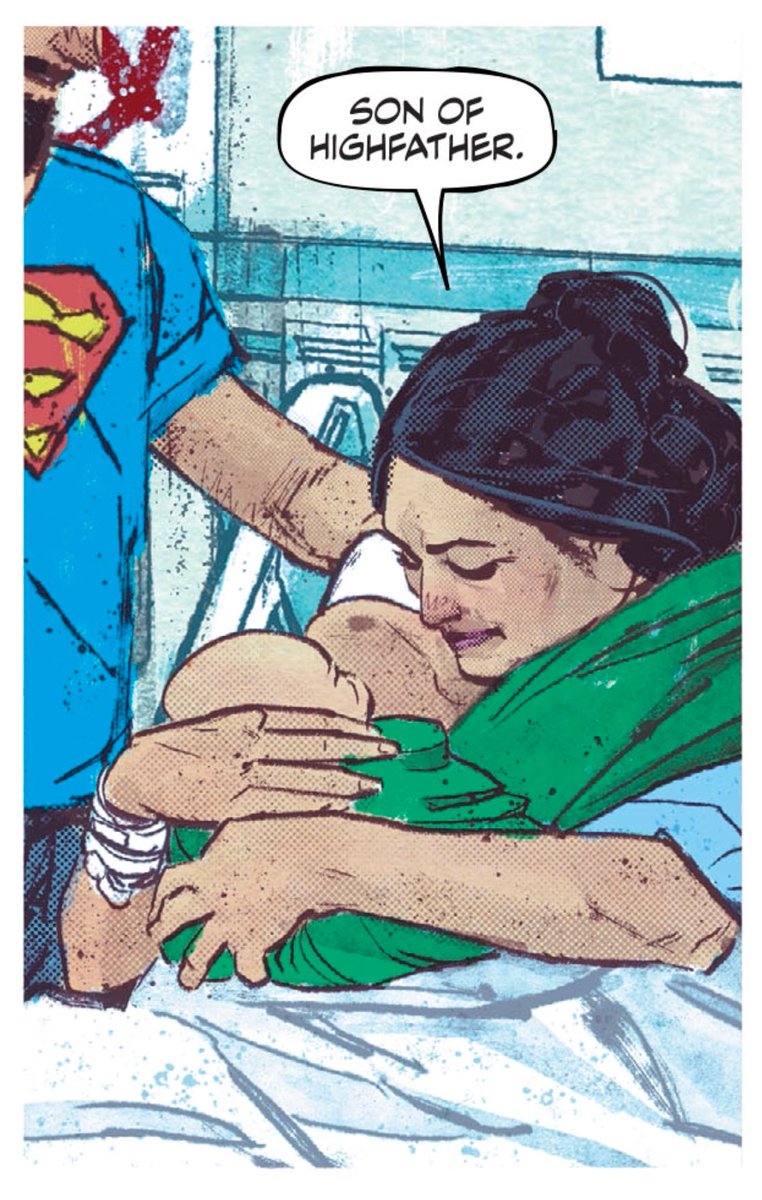
Barda is also a hero outside of the Justice League. She teaches self-defense classes for women and is a great ally and confidant to her husband, Mister Miracle. When Scott’s mind works against him, Barda supplies loving clarity to talk him through his pain. She supports his decisions and acknowledges that he needs space to make his own mistakes. When Scott’s back is against a wall, Barda is right alongside him to help him pick up the pieces. In this way, Barda proves that being a superhero doesn’t always mean suiting up for the big fight. Sometimes it’s showing support for someone you love, or sharing a valuable skill with neighbors in need.
For many comic book readers, superheroes represent the best parts of ourselves. Drive, ambition, courage, and selflessness are all crucial pieces of being an exceptional person. All of these things are present in Barda- the drive to move forward, the ambition to build something good, the courage to start anew and face her demons, and the selflessness to share her wisdom with the world. She is a prime example of a superhero with healthy habits, which makes her one of the most important depictions readers can see. With any luck, the upcoming movie will bring her message of balance and self-care to a larger audience. Take it from Barda- it’s difficult to save anyone if you have not first saved yourself.